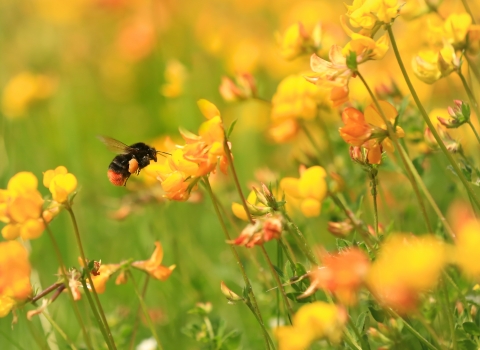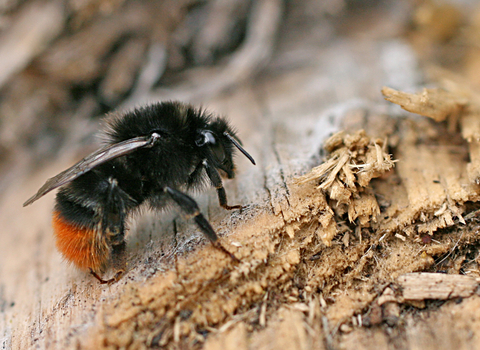
Red-tailed bumblebee ©Jon Hawkins - Surrey Hills Photography

Red-tailed Bumblebee ©Penny Frith
Red-tailed bumblebee
Living up to its name, the red-tailed bumblebee is black with a big, red 'tail'.
Scientific name
Bombus lapidariusWhen to see
April to NovemberSpecies information
Category
Statistics
Length: 2.2cmCommon.
